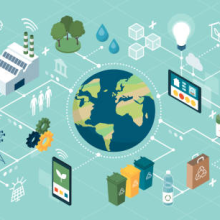This is Environmental Education Not An Acceptable Brainwashing
Environmental education isn’t about brainwashing people into believing one viewpoint, it’s about providing the facts so that individuals can make informed decisions.
Therefore, environmental education should be unbiased, comprehensive, and up-to-date so that everyone can learn how to take responsible action to protect our environment.
Our planet is in trouble, and education is key to helping us all understand why.
Environmental education is a critical component of the global effort to protect and conserve the environment.
It helps us to understand our impact on the environment, how to reduce it, and how to live sustainably.
However, environmental education is not an acceptable form of brainwashing.
Instead, it provides us with the knowledge necessary to make informed decisions about our actions and their consequences on the environment.
The Basics
As time goes on, we see more examples of environmental issues being raised in the classroom, and younger children being exposed to environmental subjects.
Most schools now have a policy of getting children involved in environmental projects, and this has led to accusations of brainwashing from some sources.
But what exactly is brainwashing, and is it something we should be prepared to accept when it is for a cause we believe in?
Arguably, education is a way of preparing children for the world that they will move into when they have outgrown their schooling.
As this world comes to grips with environmental matters, the fact is that it is not a subject that will go away tomorrow.
Therefore, getting children involved in environmental projects is something that will prepare them for a world that is going to see the environment as an ever bigger issue the longer it is in question.
The question is whether environmental education is an acceptable form of brainwashing.
After all, brainwashing is something we have come to associate with totalitarian states.
However, it is important to consider the definition of brainwashing.
According to the Oxford dictionary, brainwashing is “the process of pressurizing someone into adopting radically different beliefs by using systematic and often forcible means.”
When it comes to environmental education, there is no use of force or pressure.
The goal is to educate children about the importance of taking care of the environment and the consequences of not doing so.
It is not about adopting radically different beliefs but about making informed choices that will benefit both the individual and the environment.
What children should not be burdened with is the guilt of choices they may make without realizing their implications.
A child who throws litter away without knowing the damage it causes is not some kind of thug.
Instead, if the subject is raised, it should be in a way that lets them see how their actions can be positive.
By encouraging them to dispose of litter cleanly, we can reward positive behavior.
Benefits of Environmental Education for Children
Environmental education offers numerous benefits to children beyond just learning about the environment.
Here are some of the benefits of environmental education:
- Critical thinking skills: Environmental education encourages children to think critically about the world around them. They learn to ask questions, collect and analyze data, and make informed decisions.
- Empathy and compassion: Environmental education teaches children to understand and appreciate the natural world, which can lead to feelings of empathy and compassion for all living things.
- Health and wellness: Environmental education promotes healthy lifestyles by encouraging children to spend time outdoors, be physically active, and make healthy food choices.
- Citizenship: Environmental education teaches children about their responsibilities as citizens and how they can make a positive impact on their communities and the world.
- Career opportunities: Environmental education can lead to a variety of career opportunities in fields such as environmental science, conservation, and sustainability.
Conclusion
In conclusion, environmental education is not brainwashing. It is a way of preparing children for the world they will live in by educating them about the environment and its importance.
It offers numerous benefits, including critical thinking skills, empathy and compassion, health and wellness, citizenship, and career opportunities.
Children should not be burdened with guilt, but instead, they should be encouraged to make positive choices and to see the impact of their actions.
Environmental education is a crucial aspect of education that should be incorporated into every child’s learning experience.
Here are some reputable websites that provide information on environmental education and related topics:
- National Environmental Education Foundation (https://www.neefusa.org/)
- Environmental Education Association of New Mexico (https://eeanm.org/)
- North American Association for Environmental Education (https://naaee.org/)
- National Wildlife Federation (https://www.nwf.org/)
- Environmental Defense Fund (https://www.edf.org/)
- United Nations Environment Programme (https://www.unep.org/)
- World Wildlife Fund (https://www.worldwildlife.org/)
- Greenpeace (https://www.greenpeace.org/)
- Sierra Club (https://www.sierraclub.org/)
- National Geographic (https://www.nationalgeographic.com/environment/)


